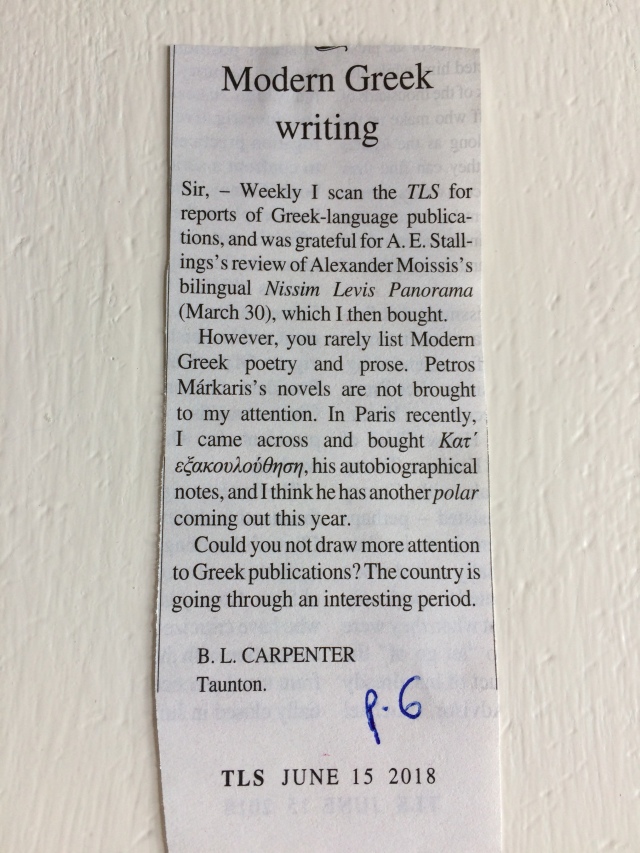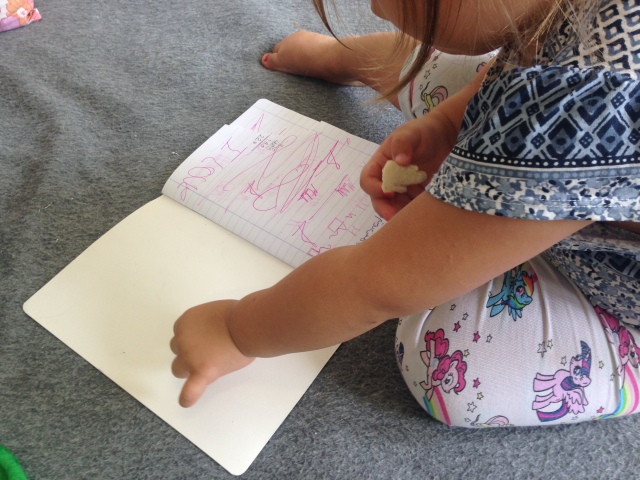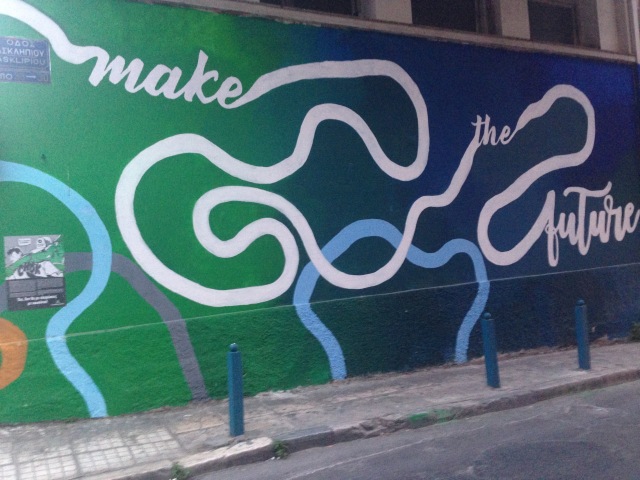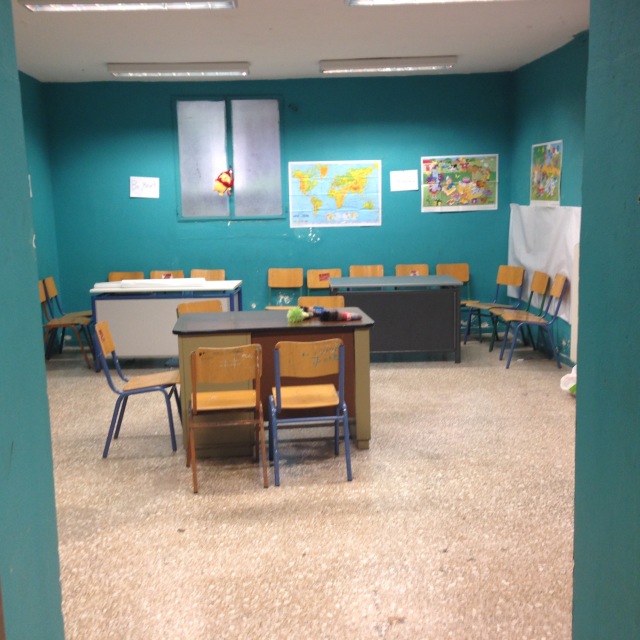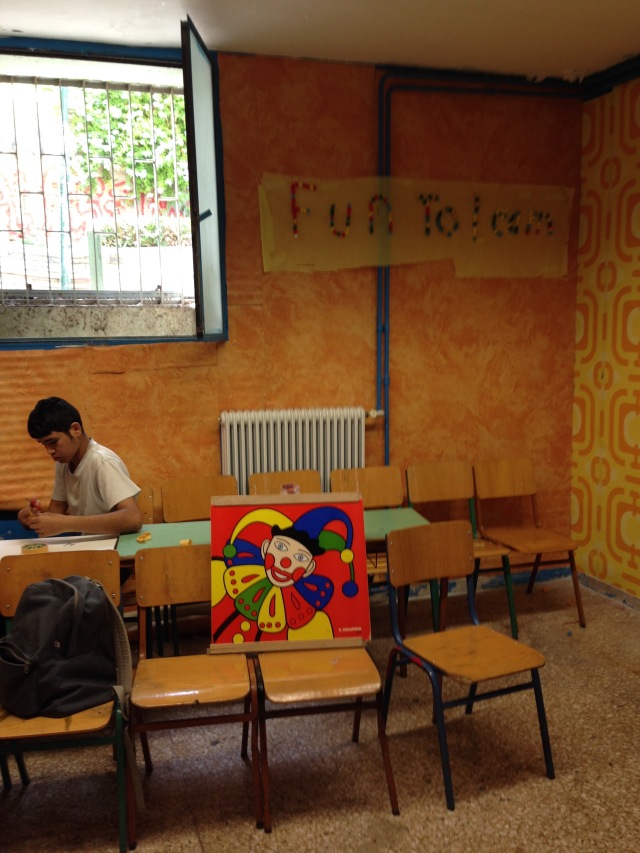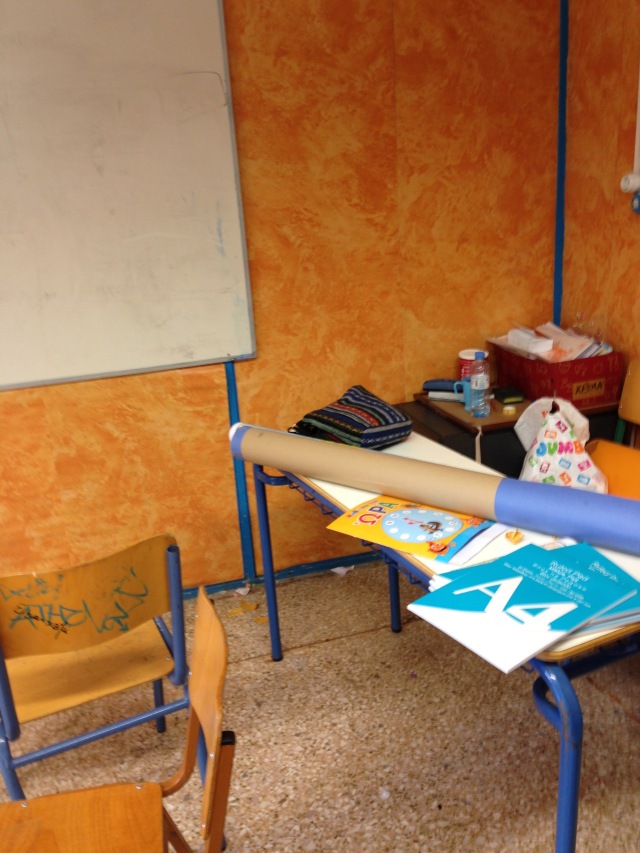(“What found us” a Greek expression)
After the fires that destroyed Mati on Monday July 23, and claimed the lives of 97 confirmed victims, people talked for weeks of what went wrong, what could have happened, what did happen. I knew people who knew people who died. Someone I would nod to in the hallways at work, a familiar face, died. A lot of animals died. A lot of trees burned. I took notes, hardly able to process the tragedy. I live a 15-20 minute drive away. This is what I did w/ my notes:

You’ll go to yoga after buying a kilo of apricots
They’re going for a euro a kilo at the end of today’s market day, Monday
At 2p.m., the vendors are hawking the cheapest prices, and the winds are manic
Sometime in the middle of the night
You wake to the charred-air smell, feral winds — somewhere there’s a fire
Sometime in the middle of the night the sound of a text message on your cell —
“MATI!!!”
You’ve made it a habit of not watching the news, so you hear it this way or rather
You smell it
See it too — the sky’s diffused early morning orange
*
In the pharmacy someone is gesturing, when we start thinking of
Our televisions & houses, we’ve lost everything! And the pharmacist nods
Her products are overpriced but she agrees with the gesticulating man,
Says her father said first the neighbor then my family
At work people’s office doors are open (those still at work since it’s July)
Here you hear the Business Dean’s assistant is missing
Someone in the library made it to the water, saved hours later
There were boats from Rafina, Rafina wasn’t burning
You see the images from your desktop, the dog that looks sad
On his rock, all the dogs, all the cats — the rodents, the caterpillars, all
The worms you imagine burned, so you leave your desk, tell your Dean
You’re going to see if you can find any animals alive
And she says, do you plan to do bring them all back to your apartment?
You don’t know. You just leave. You buy dry dog and cat food, and 12 bottles of water
*
The once-blue road signs are burnt blank, some heat-bloated like caricatured letters,
The earth’s smoking. You park the car on the roadside, a church in front of you
Further on, police removing roadblocks, you keep going on Marathonas,
Then turn — the stench in your throat, see the carcass of cars on a side street
You have a melon with you, cat and dog food, and 12 bottles of water
*
An older woman was looking at me. She was walking down the side street, or crossing & re-crossing from one side to the next, as I was moving slowly in the car
She came to my side talking in mid-sentence, gesturing, … all picked up, he hasn’t Stopped but all the cuttings were sitting in the streets… It was that time we prune —
Everything was piled up now he’s picking it up… we left and repeated, as if I had not heard her, we left. The house is okay but we left it. We had some awnings
For the children so they wouldn’t be under the sun, those are gone… I nodded, moved on up the street back to Marathonas, waved as she continued down the street
There were no animals, the sky still grey, smoke-hazed
There had been no alert
No church bells
No alarm
No sirens
No warning
… Oh my god our arrogance!
*
Later I listen to the news, endless interviews, the mayor of Marathonas, the head of the fire brigade, the head of the fire fighter volunteers: It could have been
Stopped & not cost a single life had it been caught in Kalitechnoupolis — some addled man was burning trash, he was always burning trash, but it was the winds that day
Their direction, a lack of communication. It could have been stopped if water had been dumped on that trash. The winds were going at 80 kilometers…
Planes couldn’t fly to dump water… The winds kept changing direction… Her husband called from Rafina to say the fire was in Voutsa; she was in Mati with their son, her
mother too, the police were now on the Marathonas road directing traffic toward the seacoast as the flames came down the mountain, as they reached Marathonas
Skipped the asphalt at 80 kilometers an hour, maybe at 100, who knows, cars jamming
the side streets into Mati, trees burning houses burning streets burning people screaming burning
*
People can’t stop talking about what happened —
When will we understand our houses and TVs won’t save us?
This State…
Why weren’t people evacuated?
It went so fast
Of course there was no rain when we needed it…
Now the rain floods Marathonas, mud slush coming down the burnt hillsides, ash, dead branches, debris
Now is all about what went wrong
The mayor in his ironed white shirt, his loosened black tie looked like he’d come out of a club when they interviewed him that night
Speaking fast he was saying no none, no human effort, could keep up w/ the pace of the winds, though police had misjudged
Sent traffic into the jammed streets of Mati, smoke-blinded, gagging, people were screaming, some left their cars, trying to find the sea
Did your house burn too? The reporter asks, and the mayor w/ longish hair laughs Of course it burned, thankfully it burned!
Thankfully? Asks the reporter, Yes thankfully, the mayor gives another short laugh, Otherwise, they’d think I started the fires
*
I can’t talk about this anymore, someone says at work
At work we’re not talking about it
It being the fact of Katia, that she had most likely died in the fire with her 21 year old son, her mother and husband
Still missing — someone went to check the hospitals — any news? I ask tentatively
No news. No news… the person in the Xerox room is almost dismissive
She was probably in that group of 26, huddled together in the lot, meters from the sea
I don’t remember who said it but it was finally said
Like Pompeii, a friend writes from the States. Like Pompeii families were caught, with minutes to decide — even seconds weren’t enough
A young 13-year old athlete jumped hoping she’d find the sea but it was a cliff
A grandparent taking care of the two grandchildren, babies really, wrapped them in wet cloths and gave them quickly to someone I’m staying with him she said
And pointed to her husband who was too old to run
A man with a dog who had just given birth tried to get them out of the house but the dog wouldn’t move, so he went down into a basement room, and waited
And lived
There are people so much more important than any of us, says Elina days later, days later the stories accumulate, we hear too of a young husband who grabbed his child
out of the car
And ran
And left his young wife behind
You mean he didn’t even grab her hand? We watch him on TV the day after looking at a metal carcass on the side of a charred street, expressionless
*
The air is still acrid. I was looking for what might be alive
Found a still-live electrical wire, the wood column like a smoldering match
Wind siphons its sound through the stripped trees
The silence had a color and smell
The only body that seemed to be moving
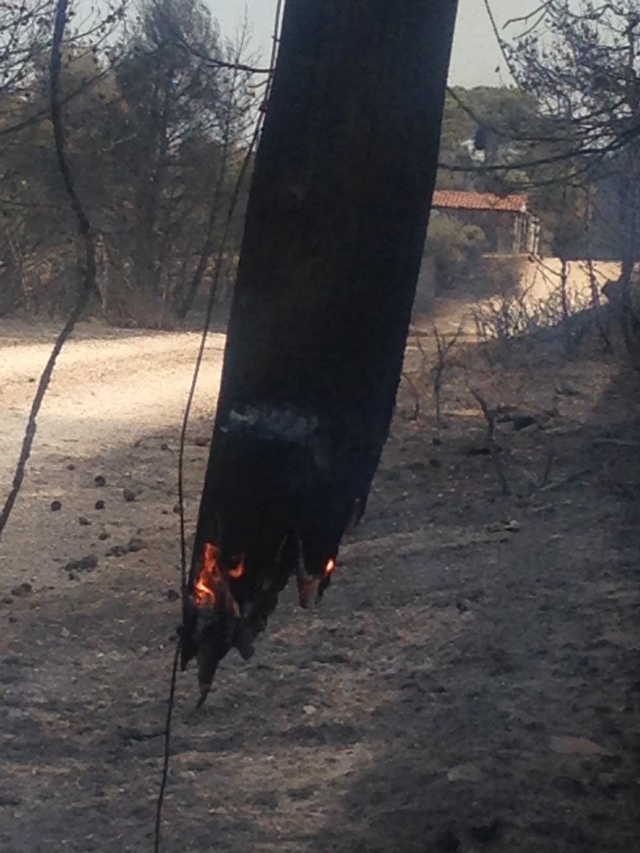
*
Days after
The hot water on my hand the burnt shrimp in the oven the closeness of the pine branches to my balcony the wait for the elevator in the basement the low-ceilings of the ferry the smell of the grill the press of people in the corridor the heat the heat the heat the heat of anything near my skin… has me weeping
It changes you, someone says, these situations, these fucking situations —
The words brittle, charged, sometimes impossible, sometimes matter-of-fact, as in the words of the young husband who said, I didn’t look back, his expression blank but for the — on his back the child he grabbed, placed on his shoulders & swam & swam & swam & was finally saved. But not his — she was — where he didn’t — back where the fire would have burned —
*
Today
It’s the volunteer with the bad teeth I think of, the small animal she described in the midst of the empty landscape, it came running to us and I cupped some water in my palm for it, then it ran off, confused. It was trembling, that small, tiny thing looking for some life, some way to survive
9 days later
People in the cafés in Rafina are talking about it —
What if it had been a Sunday?
What if it had happened at night, & everyone was sleeping…
Because it happened in the late afternoon, on a Monday
Because it was as tragic as it was
What if
The man who had called his wife had said leave! instead of going to find them in his car, what if they had not gone into three cars, and tried to leave in those streets, they
In that group of 26, caught in the flames, hugging
What if
The government had warned people, all those churches, someone says, in the villages we ring the bells
What if
The man had not grabbed A’s arm, and said Not that way, you’ll burn & separated her from K, who did burn
Alexandra wants to throw a rock at the television
What if someone took some responsibility for once! These ministers are so cynical, no one even cried!
What if the state had actually used the alert they bought after the 2007 fires in Zacharo, what if people got an SMS, which would have cost nothing?
*
A reporter was talking to a homeowner in one of the destroyed yards. I was in my car. I’d just spoken to the woman who kept crossing and re-crossing the street
The yard was charred and a young guy, maybe the owner’s son, was cutting away at the black stems of what had been a garden, he looked at me and I looked at him
And then I drove away


